Colombian government and Farc to sign new peace deal
- Published
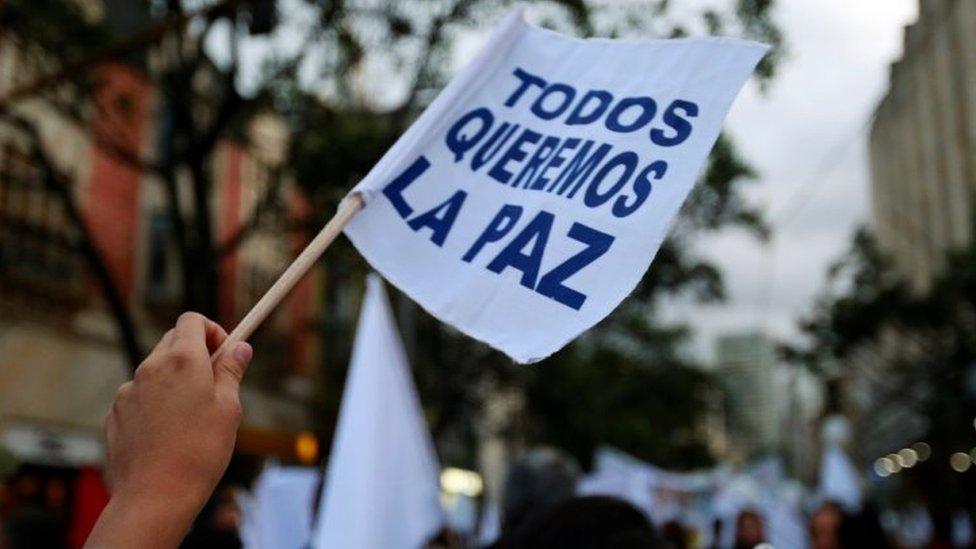
Backers of the peace deal have taken to the streets to show their support
Colombia's government says it will sign a new peace accord with Farc rebels on Thursday, after a previous deal was rejected in a referendum last month.
The new revised agreement will be submitted to Congress for approval, rather than put to a popular vote.
But opposition groups say it still does not go far enough in punishing rebels for human rights abuses.
The deal is aimed at ending five decades of armed conflict, which has killed more than 260,000 people.
Why was a new deal needed?

President Juan Manuel Santos (L) and Farc rebel leader Timochenko signed the original deal on 26 September
After four years of formal talks between rebel and government negotiators, the two sides reached an agreement earlier this year.
The deal was signed in an emotional ceremony before world leaders in the Colombian city of Cartagena on 26 September.
But Colombian President Juan Manuel Santos had said from the start of the negotiations that he wanted the Colombian people to have a say in the peace process.
He asked them to endorse or reject the peace agreement in a popular vote held on 2 October.
Polls had suggested the deal would pass by a comfortable margin but in a shock result it was narrowly rejected.
What happened next?
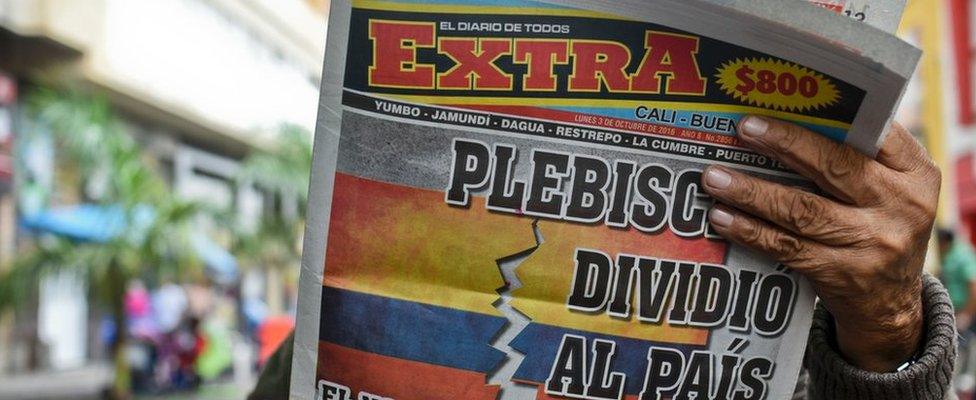
The rejection of the peace deal divided the country, newspapers reported
A bilateral ceasefire was extended until the end of the year to give the two sides time to plan their next steps.
President Santos met former President Alvaro Uribe, a vociferous opponent of the peace deal, to listen to his objections.
The government and the Farc then went back to the negotiating table to try to strike a new deal acceptable to those who had voted "no".
Changes were made to all but one of the 57 points in the original agreement.
What are the changes?
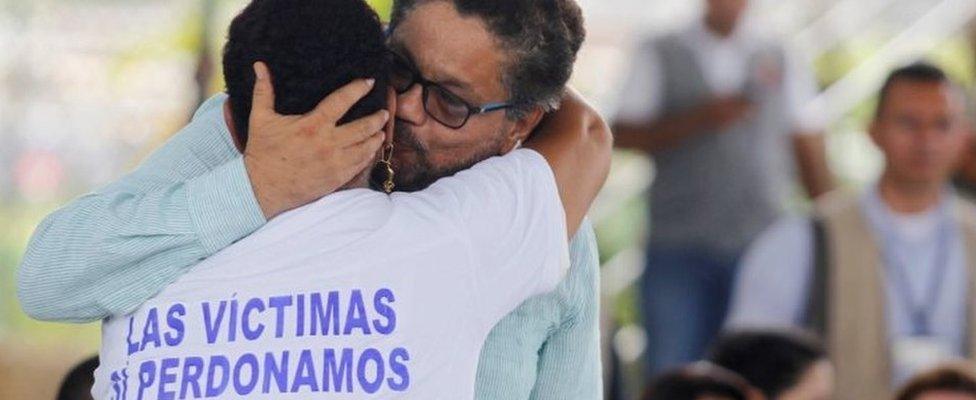
Under the new agreement, Farc rebels will have to declare their assets and the money will go towards victims
The five main points which have been changed are:
The Farc will have to declare all their assets and hand them over. The money will be used for reparation payments for the victims of the conflict
Concerns by religious groups that the agreement undermined family values have been addressed
A time limit of 10 years has been set for the transitional justice system
Farc rebels will be expected to provide exhaustive information about any drug trafficking they may have been involved in
The peace agreement will not form part of Colombia's constitution
What now?
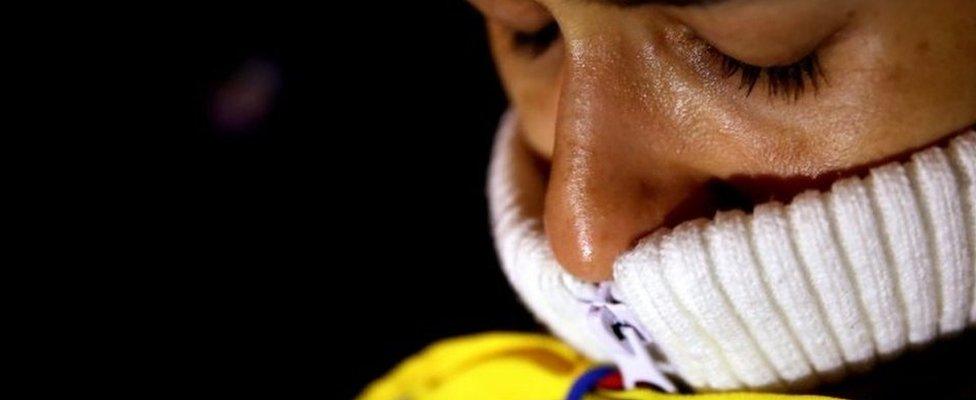
The peace deal was left in limbo following its rejection in the popular vote on 2 October
President Santos has announced that the revised deal will be signed in a low-key ceremony in a theatre in the capital, Bogota, on Thursday.
The deal will then be sent to Congress, where the government has a solid majority, with a vote expected to be scheduled for next week.
Will it pass?
The Democratic Centre party, founded by ex-President Uribe, has already said it will vote "no".
Its leaders say that the changes are only "cosmetic" and object to the fact that the government has said the new deal is "final".
It wants more of its demands met, including harsher sentences for Farc rebels who have committed crimes.
It also demanded that the revised deal be put to another popular vote, which President Santos and the Farc have both ruled out.
Other parties in Congress have given the deal its backing, so it is expected to pass.
What has the public reaction been?
Public opinion remains divided into those who supported the original deal and those who remain suspicious of the Farc and their motives.
Some say President Santos is ignoring the will of the people by refusing to put the revised deal to a popular vote.
But others say Congress represents the Colombian people and its approval should suffice.
Shortly after President Santos announced that the revised deal would be signed on Thursday, #PresidenteJustDoIt began trending on Twitter in Colombia.

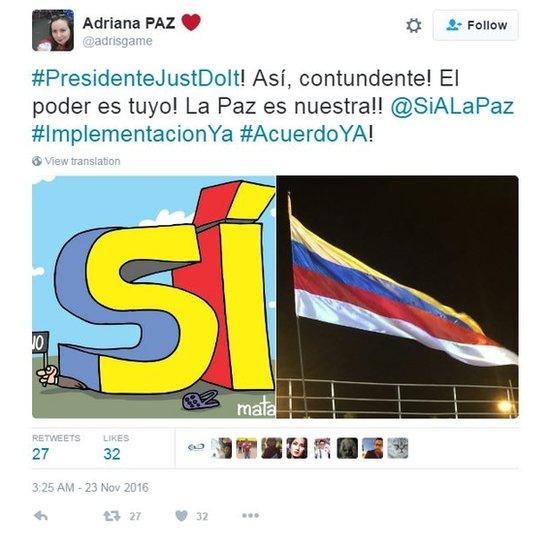
"President, just do it" started trending on Twitter in Colombia

The posts urged Mr Santos to go ahead with the implementation of the peace deal.
But there were also those who condemned the new agreement, saying that the venue for its signing, the Colon Theatre in Bogota, was appropriate for "this political theatre".
- Published3 October 2016
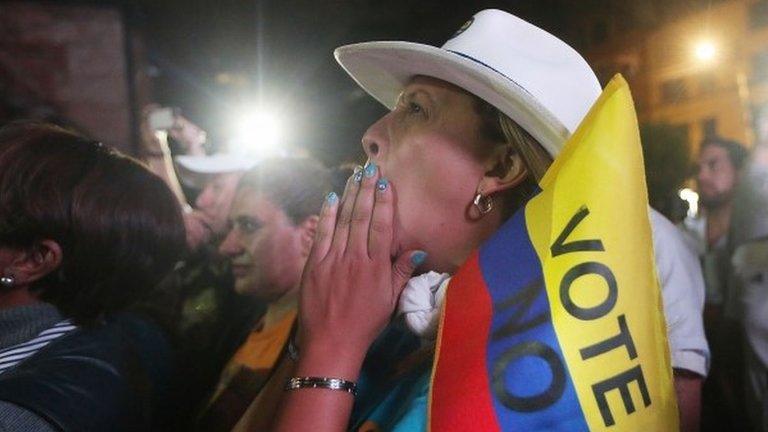
- Published24 November 2016
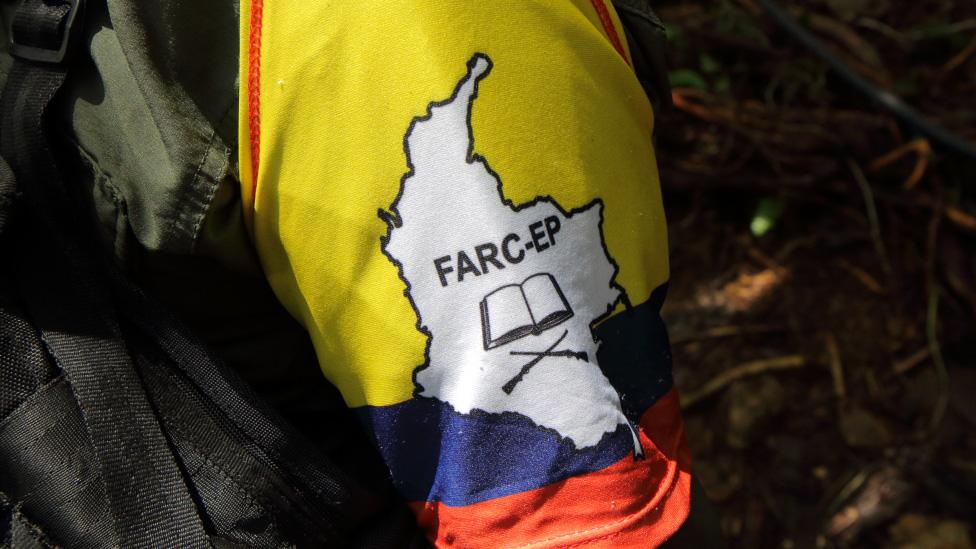
- Published28 September 2016
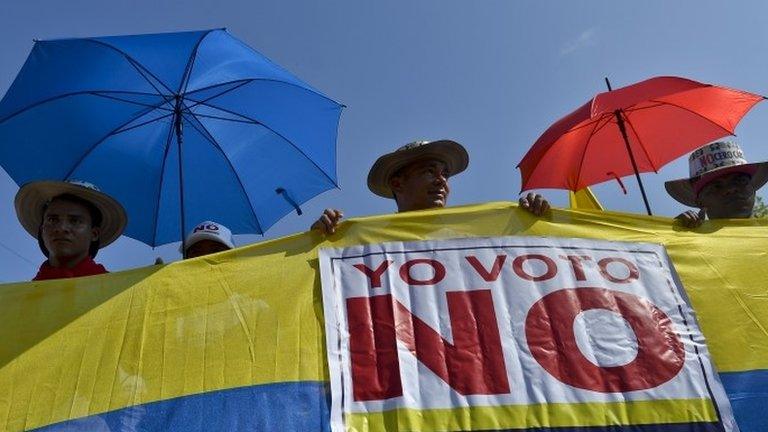
- Published27 September 2016